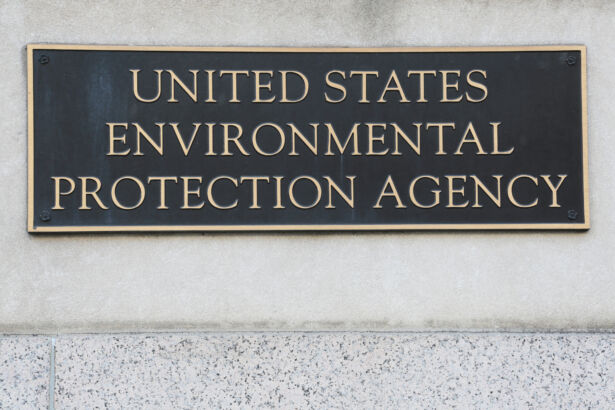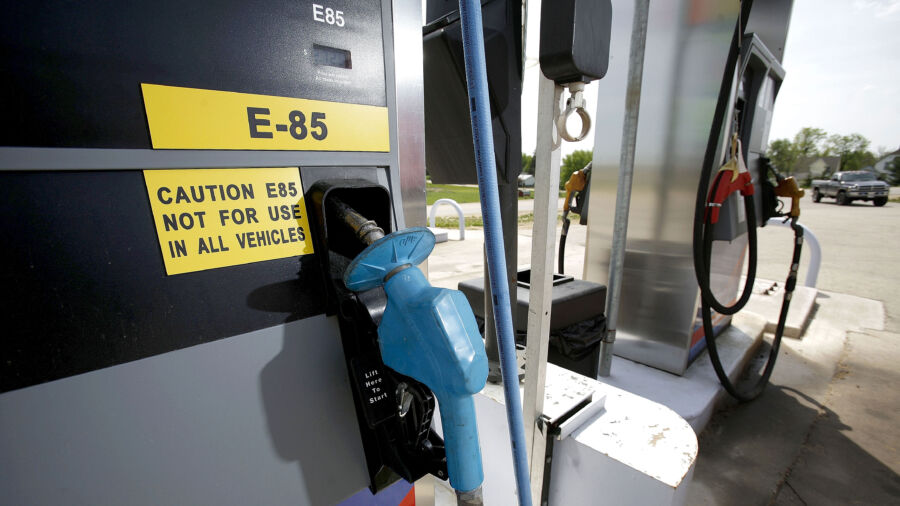The Environmental Protection Agency’s (EPA) biofuel program is doing more harm than good by killing endangered species, according to a federal lawsuit against the Biden administration.
The lawsuit (pdf), filed in mid-July at the D.C. Circuit Court of Appeals by the Center for Biological Diversity (CBD), challenges the EPA’s fuel-volume requirements for corn ethanol and other biofuels through 2025.
The complaint alleges that EPA failed to fully assess the impacts of the biofuel program on endangered species from land conversion and pesticide and fertilizer use to meet its volume targets.
Earlier in July, the agency set its 2023 required minimum volume for the transportation sector use at around 15 billion gallons of corn ethanol and just over 5.6 billion gallons for advanced biofuels.
The move was part of the new Renewable Fuel Standard, which boosted the amount of biofuels that U.S. refiners must blend into the nation’s fuel supplies, while keeping in place lower mandates for homegrown corn-based ethanol.

The CBD alleges that the EPA, in setting its renewable fuel targets, failed to fully comply with the Endangered Species Act by failing to complete consultations with the U.S. Fish and Wildlife Service and the National Marine Fisheries Service to address harm to endangered species and water quality, while exacerbating ocean dead zones.
“It’s distressing the EPA has used every dirty trick in the book to avoid an honest assessment of the massive environmental harms caused by its renewable fuel program,” Brett Hartl, government affairs director at the Center for Biological Diversity, said in a statement obtained by The Epoch Times.
“These renewable fuels requirements mean millions more acres of land will be lost, our streams and rivers will choke with more pollution, and coastal dead zones will continue to expand,” Mr. Hartl added.
“The Biden administration failed to even modestly reform this boondoggle and crumbled again in the face of political pressure from powerful special interests,” he added.
The EPA told The Epoch Times in an emailed statement that it wouldn’t comment on pending litigation.
More Details
Under the Clean Air Act, the environmental agency could set its biofuel targets at any level it considered appropriate because minimum requirements set by Congress ended in 2022.
The Center for Biological Diversity alleges that, despite its newfound flexibility, EPA ignored “serious environmental harm from ever-growing biofuel requirements,” in mandating 15 billion gallons of conventional corn ethanol for each of the next three years, in addition to 5.9 billion gallons of advanced biofuels in 2023, rising to 6.5 billion gallons in 2024 and 7.3 billion in 2025.
Part of the problem, according to the CBD, is that when corn is grown for fuel, there are fewer restrictions on the use of pesticides and fertilizer, which run off into streams and waterways. This pollution harms endangered species such as the pallid sturgeon in the Mississippi River while worsening ocean dead zones and harming sea turtles.
The EPA requested environmental impact consultations with the Fish and Wildlife Service and the National Marine Fisheries Service four days after it had already finished work on the new standards and sent the final rule to the White House for review.
“Not surprisingly, the agencies were not able to complete their analyses in such a short time frame,” according to CBD.
Industry scorn heaped onto the EPA’s new final biofuels rule is adding to the Biden administration’s biofuels troubles.
Industry Backlash
In a statement to announce the new renewable fuel standards, the EPA said the final rule builds on the Biden administration’s “commitment to strengthen the nation’s energy independence, advance low-carbon fuels, and support agricultural communities.”
The agency said the new rule will strengthen domestic energy security by reducing reliance on foreign sources of oil by about 130,000 to 140,000 barrels of oil per day over the next three years.
In addition, the anticipated value of the energy security benefits to the U.S. economy could reach up to $192 million per year over the three-year period, according to EPA estimates.
However, industry stakeholders’ reactions to the final rule appear to be consistently negative.
“If the EPA’s goal with the Renewable Fuel Standard is to maximize reductions in greenhouse gas (GHG) emissions from the transportation sector, today’s final rule falls short by arbitrarily limiting conventional biofuel use to 15 billion gallons in 2024 and 2025 compared to the Agency’s proposal of 15.25 billion gallons for each of those years,” Brian Jennings, CEO of the American Coalition for Ethanol (ACE), said in a statement.
Mr. Jennings argued that higher blending targets would enable fuels such as E15 and E85 to displace carbon pollution from gasoline more quickly, although EPA’s proposal will “rein in those opportunities.”
The administration’s cut to ethanol came as a disappointment to other members of the biofuel industry, as well as to farm advocates.
“While we are encouraged that the EPA continues to call for higher volumes of renewable fuels year over year, we are disappointed that the final RVOs [renewable volume obligations] are significantly lower than originally proposed for conventional and cellulosic biofuels,” Reid Wagner, executive director of the Nebraska Ethanol Board, said in a statement.
“Our current ethanol infrastructure has the capacity today to easily meet the originally proposed 15.25 billion gallons of conventional biofuel requirement, and a growing number of ethanol producers are deploying technologies for processing corn kernel fiber into ethanol, which will contribute significant volumes of cellulosic biofuel soon,” he continued.
“Ensuring adequate RVOs aids in market development as the ethanol industry works to expand access to its products. By sidelining these low-carbon biofuels options, EPA is effectively leaving tools in the box that could be used to accomplish their decarbonization goals.”
Elsewhere, the Renewable Fuels Association (RFA) called the EPA’s decision “inexplicable and unwarranted” adding that it “misses a valuable opportunity to accelerate the energy sector’s transition to low- and zero-carbon fuels.”
“By removing half a billion gallons of lower-carbon, lower-cost fuel, today’s rule needlessly forfeits an opportunity to further enhance U.S. energy security and provide more affordable options at the pump for American drivers,” RFA President Geoff Cooper said in a statement.
The final rule also didn’t include widely anticipated pathways for electric vehicle manufacturers to generate credits under the new standards.
It did include incentives meant to bolster the use of biogas from farms and landfills, however.
Katabella Roberts and Reuters contributed to this report.
From The Epoch Times

